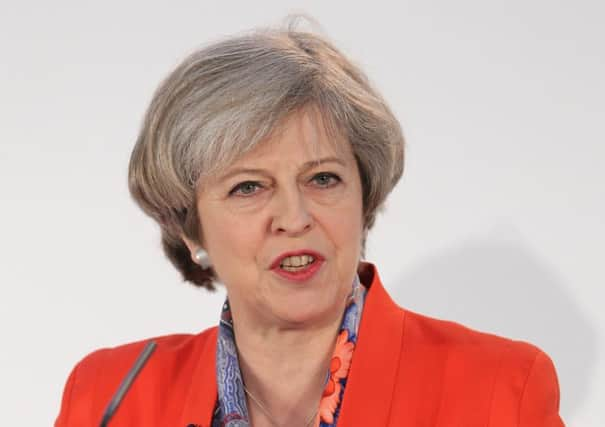ELECTION 2017: Every election, politicians ignore England '“ here's why


In UK general elections, England matters. It accounts for 82% or 533 out of 650 constituencies in the national parliament. At the 2015 general election, 318 (or 96%) of the Conservatives’ 330 seats were won in England, as were nearly 93% of the their votes.
Of Labour’s 100 most vulnerable seats, 86 are in England. For the Conservatives, 81 of the top 100 most vulnerable are also constituencies in England.
Advertisement
Hide AdAdvertisement
Hide AdIf Prime Minister Theresa May is to achieve a much increased majority at Westminster in 2017, it will be in England that her electoral fate will be predominantly determined. A key question is how many of the 3.6m voters who backed UKIP in 2015.


What’s more, important issues such as the NHS, education, higher education and housing are devolved, so this election will feature many England-only policies.
The cuts that need to be made to the national funding formula for schools, for example, apply only to schools in England. It’s only the NHS in England that needs to address a forecast £30 billion funding gap by 2020-21. And it’s also only the NHS in England that has been described as facing a “humanitarian crisis” by the Red Cross.
Simple electoral arithmetic and political logic therefore suggests that the politics of England should feature front and centre in the 2017 general election campaign in England.
A hole in the political map
Advertisement
Hide AdAdvertisement
Hide AdParadoxically, not one of the major UK political parties has yet announced plans to produce a dedicated national manifesto for England. They are, as usual, producing UK plans, and the two parties always produce manifestos for the much smaller constituencies of Wales and Scotland but have not mentioned England.
The explanation for this is simple but goes to the heart of why the British power elite has become so detached from the electorate in England.
Despite their manifold differences over Brexit, the one thing which has continued to unite the leaderships of the UK’s three major political parties is their overt British nationalism. They share the conviction that political narratives of national renewal must mean British renewal, delivered via the institutions of the centralised British state.
Most recently, this has been manifested in May’s Plan for Britain. This policy purports to be aimed at building a “stronger, fairer” country, even though devolution to the administrations in Scotland, Wales and Northern Ireland means that it can only really be a “Plan for England”.
Advertisement
Hide AdAdvertisement
Hide AdMay, Jeremy Corbyn, Tim Farron and others therefore have been observing one of the unwritten laws of British nationalism. This states that no party shall publish a manifesto for England during a UK general election campaign, because it might challenge the authority of the British state. It might jeopardise Westminster’s capacity to continue to govern England in the centralised, top-down fashion to which the British party political power elite have become accustomed.
Only once has this unwritten law been challenged. During the 2015 general election campaign, David Cameron and William Hague launched the Conservative Party’s first ever English manifesto. It was the first such manifesto by any major political party.
However, even then Cameron began his launch speech on the defensive, stating: “Let me be clear: we do not support English nationalists … we do not want an English parliament … we are the Conservative and Unionist Party through and through and through.”
Fearing nationalism
Cameron was articulating one of the enduring characteristics of the British power elite, from Tony Blair to May. Any demand for an English parliament or devolution to England amounts to English nationalism.
Advertisement
Hide AdAdvertisement
Hide AdHowever, there is nothing intrinsically nationalistic about the desire to enhance either the process of English governance or the creation of a democratic, institutional civic English national identity to better reflect the increasingly plural and multicultural population of England.
For the British party political power elite, the danger of opening up an English political narrative is that the English electorate might begin to look a bit more closely at the funding formula that sustains the British union. They might ask why identifiable public spending in England, at £8,638 a person in 2014-15, is 14.6% lower than in Wales (£9,904). They might wonder why it’s as much as 20.1% lower than in Scotland (£10,374) and 28.6% lower than in Northern Ireland (£11,106).
Voters in England might also question why mayoral elections are being held in six combined authorities across the country. This despite the fact that more than two-thirds of mayoral referendums and no fewer than nine out of ten cities, have voted to reject an elected mayoral system of governance. No voter in England has sanctioned these decisions in a referendum.
In the 1975 European Community referendum, England voted 68.7% in favour of staying in the European Community. It was the most europhilic of the nations of the UK. By June 2016, England had become the most eurosceptic of the nations. It voted 53.3% to leave the European Union and was decisive in determining the referendum’s outcome.
One key lesson for the British power elite is clear: ignore the national politics of England at your peril.
This article originally appeared on theconversation.com